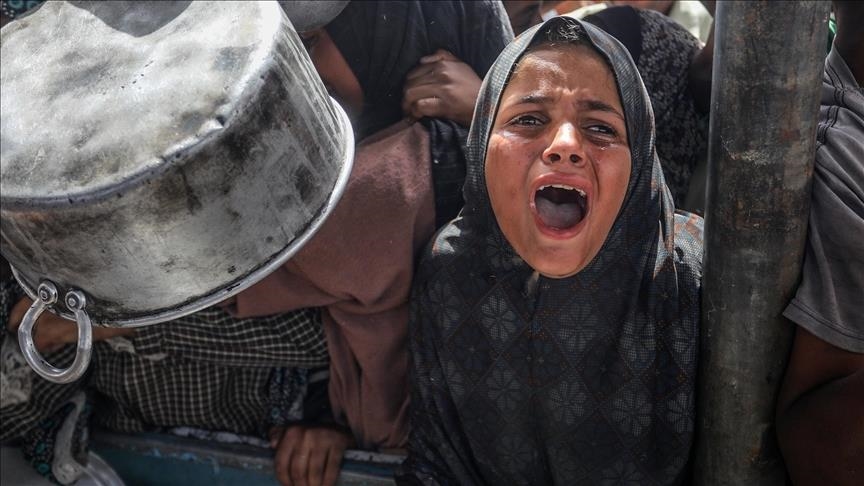UN experts warn of deliberate starvation, rising attacks on aid workers in conflict zones
They cite Gaza, Sudan, Yemen among conflict zones where starvation is weaponized, aid is obstructed, humanitarian workers increasingly targeted

GENEVA
The use of starvation as a weapon and the systematic obstruction of humanitarian access are becoming alarmingly common in today’s armed conflicts, experts warned at a UN Human Rights Council side event on Thursday.
Speakers stressed the urgent need to protect humanitarian personnel and ensure unimpeded access to civilians in need. Their remarks came during a side event at the 59th Human Rights Council on humanitarian assistance, access, and personnel protection.
"Unfortunately, we are seeing in the last several years the rise of the use of starvation as a weapon against civilians in times of conflict," Michael Fakhri, the UN special rapporteur on the right to food, said. "It's always used as a tool of population control to move people around."
Francesco Motta from the UN human rights office emphasized the gravity of attacks on aid workers, especially in Gaza. "Since the 7th of October 2023, at least 467 aid workers have been killed" in Gaza, he said. "These are not humanitarian crises… they are human rights crises of which the humanitarian crisis is a direct consequence."
Altaf Musani, director of humanitarian and disaster management of the World Health Organization, also raised alarm over the targeting of health care.
"Health care is becoming the target. This must stop," Musani said. "There is not a single fully functioning hospital in the Gaza Strip today."
International humanitarian law expert Marco Sassoli, for his part, noted: "Starvation as a method of warfare directed against the civilian population is prohibited," adding that "such relief personnel also have to respect the security needs and other conditions set up by the state."
UN humanitarian affairs office's Patrick Duplat concluded by saying: "Access is not binary… It spans from the checkpoints to the Security Council."
He warned that militarized aid efforts are "not in line with humanitarian principles" and "pose a severe threat to the protection of civilians."
Anadolu Agency website contains only a portion of the news stories offered to subscribers in the AA News Broadcasting System (HAS), and in summarized form. Please contact us for subscription options.







